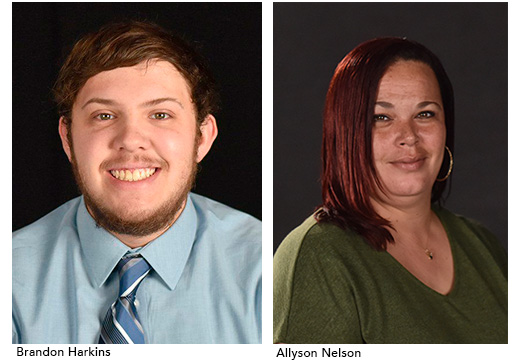MCC’s Telecommunications Program: Keeping communications essential

When Brandon Harkins worked on his associate degree in Systems Based Electronics Engineering Technology at Meridian Community College, he decided a double major in the Telecommunications Technician Program would make him more competitive today’s workforce.
Completing the requirements for two closely related programs in the same department for no extra tuition cost was a no brainer and would pay off in the long run, he thought.
“I loved the Telecommunications Technician Program. I learned a lot about the application of telephone systems and how they operate,” said Harkins, who graduated from MCC in May with his dual degrees. “I believe it is always good to have these skills even if telecommunications is not your field of study because I will have something to fall back on one day if I need to, plus I can always use these skills to make repairs around the house myself.”
As the coronavirus pandemic has sent workers home to work remotely and businesses have shifted operations more online, telecommunications jobs have taken an essential role. Keeping communication via phone, email and messaging open, Zoom meetings on track and e-commerce flowing requires telecommunications lines and equipment, as well as internet routers, to stay operational. As a result, technicians who help keep this distance communication infrastructure up and running are in demand.
“The field of telecommunications is never dull,” said Allyson Nelson, coordinator and instructor of MCC’s Telecommunications Technician Program. “There are a variety of jobs that need to be filled locally and nationally.”
Started in the early 1990s, MCC’s Telecommunications Technician Program prepares students for careers in the telecommunications industry teaching students how to select, install, operate, maintain, troubleshoot and repair telecommunication systems, both microwave and satellite systems.
With this two-year program, graduates earn their associate’s degree in applied science. MCC also offers classes through its Workforce division for people who are already working in the industry but want to enhance their skills and gain certification in Copper and Fiber Optic Cabling, Nelson noted.
“I advise students to attain these certifications in addition to their associate degree in the program because it will be more beneficial to them in their career,” she said.
Graduates of the program can find jobs as cell tower technicians, computer software engineers, telecommunication system managers and equipment installers, cable installers or repairers, microwave and satellite technicians, optical fiber technicians and installers, specialized equipment salespeople and cellphone technicians and repairers.
Approximately 68 percent of graduates go on to work for cellphone companies, private contractors, telecommunications companies, or cable and satellite companies right out of the program, Nelson said. Another 20 percent continue to a university to pursue an engineering degree.
Nelson said the job is perfect for someone who does not like to sit behind a desk all day because an installer or repairer travels a lot, so the scenery is always changing.
“Because everyone is online now and it will continue to be that way for years to come, I cannot imagine telecommunications technician jobs going away anytime soon,” she added.
The salary is also a good reason to look at this field, Nelson said. The annual salary for an entry-level position in telecommunications technology is about $37,113 and can grow to more than $78,000 with five years or more experience.
According to the U.S. Bureau of Labor Statistics, employees with a two-year degree in the telecommunications technician field should have the best job prospects.
Harkins, a 2017 graduate of Southeast Lauderdale High School, said he has always been fascinated by electronics and telecommunications equipment, how they work and the many ways they make life easier.
At MCC, he was a member of Phi Theta Kappa, the National Technical Honor Society and Skills USA. He worked under a telecommunications assistantship and was named the community college’s 2020 Higher Education Appreciation Day Working for Academic Excellence (HEADWAE) award recipient.
He is currently working as an electrical maintenance technician for East Mississippi Electric Power Association and eventually plans to pursue a degree in electrical engineering.
“By majoring in the two programs, I feel like MCC has prepared me for any situation I may face on the job and to continue my education in the engineering field,” he said.

